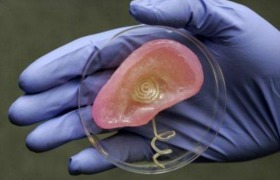Largest twin study yet: all traits are hereditary

After years of discussion, scientists finally seem to have found the answer to what determines our behaviour: genetics or environmental factors. Apparently, no clear distinction can be made between the two, because both contribute equally. This simultaneously implies that every trait is hereditary, in contrast to previous assumptions. The VU Amsterdam and the University of Queensland, Brisbane, presented the results of the largest twin study yet in Nature Genetics. Continue reading










